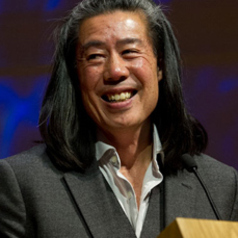Almost none of the Western world’s leaders have paid much attention to Africa in recent months. One exception was France’s newly-elected president, Emmanuel Macron, who visited Mali shortly after his inauguration. His trip was partly a show of solidarity with his country’s military effort there, and partly a gesture to the world that he’s serious about confronting insurgency and terrorism. But it was ultimately little more than gesture – one of the various signals new presidents try to send in their early days.
Not all presidents get it right, to put it mildly. And as far as Africa goes, a batch of new world leaders have barely bothered.
The US, for one, seems uninterested. Beset by a hurricane of gaffes, failed initiatives and legal trouble, Donald Trump still hasn’t appointed an assistant secretary of state for Africa. This position is normally the highest post directly concerned with the US’s Africa policy. It has been held in the past by such heavyweights as Chester Crocker, who managed the Reagan administration’s approach to apartheid South Africa. But four-plus months after Trump’s inauguration, Africa is barely on his administration’s radar.
What Washington gossip there is rates J. Peter Pham of the Atlantic Council the most likely candidate. But even if he were nominated, Pham would join a State Department desperately short on confidence and morale, its budgets about to be slashed and many of its senior personnel shorn away. In particular, aid for Africa will be a big casualty of the cuts.
The UK’s election campaign, meanwhile, has seen no mention of Africa at all, save for a debate over whether the 2011 intervention in Libya has caused terrorism “blowback”. None of the party leaders have said anything about the continent, aid or security – and nothing about democracy.
The Foreign Office minister responsible for Africa, Tobias Ellwood, is in fact responsible for both Africa and the Middle East – an impossible portfolio in which Africa will be the junior partner, especially as all ministers are made to join in the frantic search for new markets and trading partners as Brexit looms.
And as West averts its eyes, it is overlooking a strange collection of increasingly bizarre drifts away from democracy.
Steep decline
In Zambia, opposition leader Hakainde Hichilema is in prison awaiting trial for treason – ostensibly because he refused to give way to President Edgar Lungu’s motorcade. Hichilema’s legal petitions contesting last year’s elections have thus far been chewed up in the curious workings of Zambia’s senior courts, which have far from distinguished themselves.
Embarrassingly, South African opposition leader Mmusi Maimane lately sought to attend Hichilema’s trial but was denied entry to Zambia at Lusaka International Airport. The Zambian authorities did this despite his having broken no law, despite his being a member of the South African parliament, and despite his leading an opposition party that last year defeated the ANC to take control of most of the country’s major cities. They also did it despite the fact that there’s meant to be free travel within the countries of the Southern African Development Community.
It all looks like the behaviour of a curiously introspective government, one that has suddenly realised the outside world isn’t watching.
Back in South Africa, meanwhile, President Jacob Zuma continues to be rocked by scandals and revolts within his own ANC party as even his party colleagues lose patience with his cynical cronyism. Still tainted by his ties to the oligarchic Gupta family and the self-serving way he disposed of his finance minister, Zuma is now trying to keep the presidency in the family by nominating as his successor his ex-wife, Nkosazana Dlamini-Zuma, who made a distinct lack of impact as chair of the African Union.
A similar feeling of drab continuity persists next door in Zimbabwe. While Robert Muagbe stubbornly remains alive, the opposition – for all the talk of a grand coalition of fractured parties – is as divided as ever. Even party leaders such as Tendai Biti, a former finance minister, are now saying the opposition can’t win the 2018 elections.
This all makes Zimbabwe rather an anomaly in its neighbourhood: a stagnant, bankrupt country buffered north and south by wealthier ones racked with tension. There seems little hope that Zambia’s Lungu will return to a more accommodating and genuine sort of democracy, and Zuma isn’t guaranteed an easy escape to the retirement home he’s reportedly seeking in Dubai.
All the while, the US and Europe hardly seem to care. Perhaps it counts as a sort of “independence” from the scrutiny of former colonial overlords – but as these countries’ democratic oppositions are finding, living in disregard carries its own perils and pitfalls.
 Stephen Chan does not work for, consult, own shares in or receive funding from any company or organisation that would benefit from this article, and has disclosed no relevant affiliations beyond the academic appointment above.
Stephen Chan does not work for, consult, own shares in or receive funding from any company or organisation that would benefit from this article, and has disclosed no relevant affiliations beyond the academic appointment above.



 Elon Musk’s Empire: SpaceX, Tesla, and xAI Merger Talks Spark Investor Debate
Elon Musk’s Empire: SpaceX, Tesla, and xAI Merger Talks Spark Investor Debate  FxWirePro- Major Crypto levels and bias summary
FxWirePro- Major Crypto levels and bias summary  JPMorgan Lifts Gold Price Forecast to $6,300 by End-2026 on Strong Central Bank and Investor Demand
JPMorgan Lifts Gold Price Forecast to $6,300 by End-2026 on Strong Central Bank and Investor Demand 
































